Legal Regulations Surrounding Employer Responsibilities During COVID-19 In New Jersey
At the workplace, employers are responsible for the workplace environment and the safety of their employees. This is especially so after the coronavirus outbreak. If you are a business owner and you are curious about the legal regulations surrounding employer responsibilities during COVID-19, our attorneys are here to help you.
Apart from the existing policies and regulations in the system regarding employer responsibilities, employers now have to consider new regulations due to the coronavirus pandemic. For essential businesses that can remain open despite lockdowns, employers have to think about workers’ safety and health whilst operating their businesses. And even as more businesses are reopening following the stabilization of the pandemic, employers have the responsibility to ensure a safe working environment for employees.
Here are some important things to remember about employers’ responsibilities during COVID-19.
Guidelines for Workers’ Protection
Guidelines have been issued by the Occupational Safety and Health Administration (OSHA), and the Centers for Disease Control (CDC). Although these are guidelines that have been recommended by OSHA and CDC in order to protect employees, they are not requirements. Some of the guidelines include:
- Flexibility in employees’ work, including telecommuting, work from home, or staggering of timetables such that there are fewer employees at the workplace at any given time.
- Social distancing among employees of at least six feet within the organization. Six feet of social distance should also be maintained among customers and employees for the sake of employee and public health.
- In cases where a distance of six feet cannot be maintained, it is recommended to wear cloth face masks. CDC also urges employers to provide face masks and plastic face shields in such cases.
- Employees should be mindful to not share tools and equipment with other employees and coworkers.
- Employers should try and promote a culture of cleanliness where employees are encouraged to constantly wash hands with soap and water. In cases where it is not feasible to wash hands with soap and water, hand sanitizers should be used frequently.
- Employers should encourage frequent disinfecting and cleaning of surfaces and tools, especially high-frequency touchpoints.
Dealing with Sick Leave
CDC has also put out guidance for employers to deal with employees on sick leave. Once again, these are recommendations and not requirements.
- Employees should stay home if they are sick. Apart from this, employees should be allowed to stay home if any one of their family members are sick as well.
- Sick leave policies should be flexible and based on public health guidance that are currently available. Employers have the responsibility to ensure that employees are aware of them.
- In the case where sick leave policies are not offered to employees, employers should have emergency policies.
- A doctor’s note should not be required to be shown when employees want to take sick leave. Because of the COVID-19 situation, it may be hard for employees to get a hold of such documents.
Family and Medical Leave Act
The Family and Medical Leave Act (FMLA) mandates that employers have to offer unpaid leave that is protected for some situations regarding health and family. Some employees are eligible for FMLA. In order to be eligible for FMLA, employees must have met certain criteria. For example, the employee has worked for the employer for at least one year and has been working at a location in which 50 or more workers are employed.
Employees eligible for FMLA can take up to 12 weeks of unpaid leave, and will not lose their job for taking leave. They will also be entitled to the same group health insurance coverage as they would have if they had not taken the leave.
New Legislations Due to COVID-19
Under the Families First Coronavirus Response Act (FFCRA), there are two acts known as the Emergency Paid Sick Leave Act and the Emergency Family and Medical Leave Expansion Act. For businesses with less than 500 employees, employees need to comply with the legislation’s paid sick leave components. Exemptions for small businesses apply.
The Emergency Family and Medical Leave Expansion Act mandates employers to pay employees for their hours at work had they been normally scheduled to work. This applies even if the workers work more than 40 hours weekly.
The eligibility for paid sick leave extends to not only those who are caring for someone who is sick but if they remain home because their children do not attend school and there is no available child care. If you still have questions on responsibilities surrounding employers during COVID-19, you can contact us for a consultation with our attorneys.
The post Legal Regulations Surrounding Employer Responsibilities During COVID-19 In New Jersey appeared first on Carcich O’Shea.

